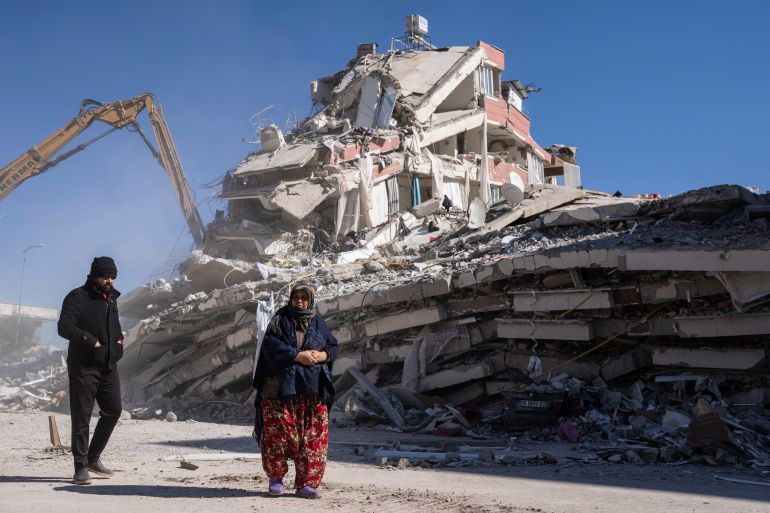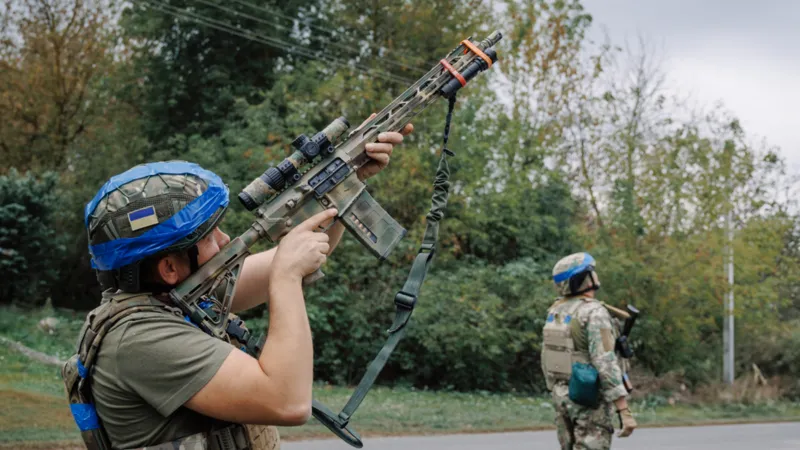Death toll climbs above 20,000 after Turkey-Syria earthquake
Human rights groups criticised the timing and content of United Nations aid delivered to northwest Syria three days after the earthquakes.

The total death toll from the earthquakes that struck southwest Turkey and northern Syria on Monday has climbed to above 20,000, a tally that is expected to rise as crews comb the rubble of thousands of toppled buildings.
Turkey’s disaster agency raised the country’s confirmed death toll on Thursday night to 17,406, while the number of lives lost in neighbouring Syria stood at 3,317.
Although the chances of finding more people alive faded after the passage of more than 72 hours since the devastating earthquakes, rescue workers in Adana, Turkey pulled out 45-year-old Akgun Eker alive from under the rubble.
Earlier in Turkey, a two-year-old boy was rescued from a collapsed building in Antakya, and an eight-year-old boy was found in Diyarbakir. The two had been trapped for nearly 80 hours under the rubble.
As rescue efforts continued, tens of thousands of survivors were evacuated from the worst-affected Turkish cities. Meanwhile, civilians in Syrian towns helped bury their dead who were killed in the quake.
More than three days after the seismic earthquakes, the first delivery of six trucks of aid supplies from the United Nations crossed into northwest Syria on Thursday.
The flow of humanitarian aid had been temporarily disrupted since the first predawn quake hit on Monday due to logistical issues and damage to the road connecting Gaziantep, Turkey to the UN transshipment hub in Hatay, Turkey.
But human rights groups sharply criticised the delivery’s timing and content.
“Shame on the United Nations for sending six trucks with aid which were already coming into northwest Syria before the earthquake took place,” said Rami Abdul Rahman, who has been monitoring violence inside war-torn Syria since 2011 and is the founder of the Syrian Observatory for Human Rights.
UN Secretary-General Antonio Guterres called for more aid access to northwestern Syria from Turkey as he sought an expanded mandate from the UN Security Council to allow UN help to be delivered through more than one border crossing. Currently, the Bab al-Hawa border crossing is the only viable route for UN aid.
Meanwhile, UN Syria mediator Geir Pedersen appealed to the Syrian government not to obstruct relief supplies for earthquake-affected people in regions outside government control.
With more aid needed for Syria, several Western countries pledged to increase the amount of humanitarian assistance they provide to the Middle Eastern country, which has already been shattered by a civil war ongoing since 2011.
Germany promised an increase of 26 million euros ($28m) to Syria, France pledged 12 million euros (almost $13m) in emergency aid, and the United Kingdom said it was committing an additional three million pounds ($3.64m) to support search-and-rescue operations and emergency relief in Syria.
‘Disaster of the century’
Following a vote in the Turkish parliament, a three-month state of emergency in southern Turkey’s 10 quake-hit provinces entered into force.
President Recep Tayyip Erdogan had announced the three-month state of emergency on Tuesday to speed up search-and-rescue efforts.
As he monitored these efforts and met victims of the quake in the province of Osmaniye, Erdogan said that the earthquakes have caused great destruction and “can be described as the disaster of the century”.
“Hundreds of thousands of people are taking part in relief efforts. All kinds of teams and vehicles from across the country have been dispatched to the region,” he said.
The World Bank announced $1.78bn in aid to Turkey to help relief and recovery efforts. US Secretary of State Antony Blinken also discussed ways with his Turkish counterpart for the United States to continue to provide assistance to Turkey and Syria.
-al jazeera






